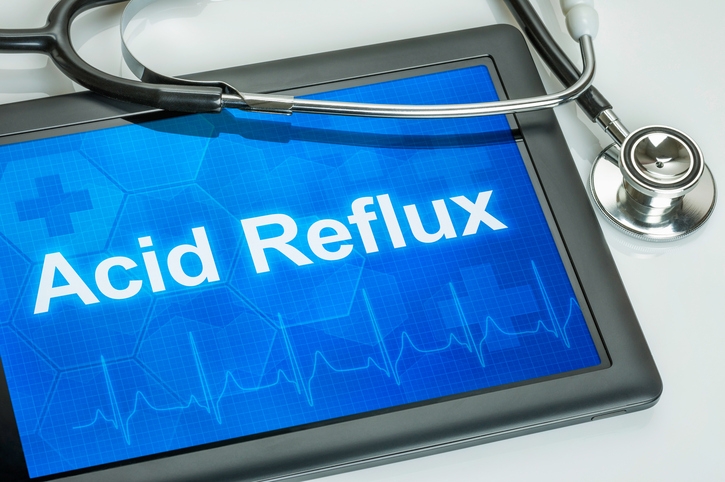Acid Reflux and GERD Surgery Guide
Frequent acid reflux is called gastroesophageal acid reflux disease, or GERD for short. Roughly 1 in 5 adults in the US suffer from GERD every year, and the number of people hospitalized for it count in the millions, with 4.7 million being hospitalized in 2010 alone.
Chronic acid reflux results from a weak lower esophageal sphincter (LES), which is the valve between your stomach and esophagus. Normally, this LES acts as a one-way valve, allowing food to pass into the stomach but preventing backward flow of stomach contents. If the LES becomes weakened, stomach acid can flow backwards from the stomach into the esophagus, causing heartburn and other symptoms of acid reflux. Acid reflux surgery reinforces the LES to prevent this.
When to Consider Acid Reflux Surgery
If your physician diagnoses you with GERD, the first step is to address the problem with lifestyle changes. Strategies to try include
- Reducing portion sizes,
- Avoiding trigger foods,
- Quitting smoking,
- Raising the head of your bed, and
- Losing weight.
Medications may also be used if lifestyle changes don’t work. However, they do not treat the source of the problem. If symptoms persist, acid reflux surgery may be the best solution.
Acid reflux surgery treats GERD at its source—at the weakened LES. There are multiple reflux surgery options available.
LINX® System Procedure
With the LINX System procedure, a flexible ring of magnets encased in titanium beads is placed around your lower esophageal sphincter. The magnets keep the LES closed but allow it to open when you swallow.
The results of the LINX procedure are instant, and recovery is minimal. It’s a great option if lifestyle changes haven’t worked and you are otherwise healthy.
Nissen Fundoplication
Nissen fundoplication is another common form of acid reflux surgery. It can be performed as an open surgery, or it may be done laparoscopically with small incisions and a tiny camera called a laparoscope. During fundoplication, a bit of your stomach tissue is wrapped around your LES, reinforcing it.
As a procedure, Nissen fundoplication is time-proven to reduce GERD symptoms, making it a solid option if you have chronic GERD symptoms that won’t go away. It also doesn’t involve installing any hardware in your body, unlike the LINX procedure.
Hiatal Hernia Repair
Often, acid reflux disease results from a hiatal hernia, in which your stomach is pinched by the gap in your diaphragm (called the hiatus). When a hiatal hernia is the cause of acid reflux, hiatal hernia repair can help treat GERD.
During this surgery, your stomach is brought back into your abdominal cavity, and the hiatus is stitched tight again, treating it at its source. Often, hernia repair is performed along with Nissen fundoplication to make absolutely certain your GERD symptoms don’t return.
Achalasia Surgery
Sometimes, heartburn may result from a condition known as achalasia, in which the LES actually constricts too much instead of not enough. It can be treated through medications or Botox injections to relax the muscle, or you might opt for surgery, in which the muscle is cut to allow food through more easily.
Achalasia surgery is appropriate only for those who have difficulty swallowing due to LES malfunction, and it may be paired with fundoplication in order to prevent GERD from acid backwash.
Recovering from Acid Reflux Surgery
Surgical treatments for GERD generally require several weeks for full recovery, though laparoscopic surgeries can have you back to most of your daily activities within two weeks. You typically won’t have a long hospital stay—a few hours to a few days at most—and you should have arrangements for someone to drive you home since the anesthesia will leave you groggy.
After surgery, you’ll be on a diet of either soft foods or liquids for a few days. You’ll reintroduce regular foods as you recover. In addition, refrain from heavy lifting for six weeks, and keep your incisions clean until they fully heal.
FAQs
Her are a few of the most commonly asked questions we get about acid reflux surgery.
Do you lose weight after reflux surgery?
Fundoplication and other reflux surgeries are not weight loss procedures. While it’s possible that you might lose a little weight after surgery, don’t expect massive losses.
How much does acid reflux surgery cost?
With the wide variety of procedures available and the huge variance in insurance plans and deductibles, it is very difficult to predict how much you will pay for acid reflux surgery. If you are a candidate for acid reflux surgery, it’s a good idea to contact your insurance company to ask about coverage of the various procedures, contracted rates, your deductible, and copay percentages.
Can GERD be cured without surgery?
You’ll typically try to treat GERD symptoms through lifestyle changes before going in for surgery. However, these changes may not treat it at its source, so surgery may still be necessary.
Find Out if Acid Reflux Surgery is Right for You
If you have chronic heartburn, trouble swallowing, or other GERD symptoms that won’t go away with lifestyle changes, Dr. Malladi can help you determine if reflux surgery is right for you. At Malladi Bariatrics & Advanced Surgery, we treat each of our patients with a high level of care and empathy, and our use of laparoscopic techniques keeps discomfort to a minimum. To find out more, contact us today.







